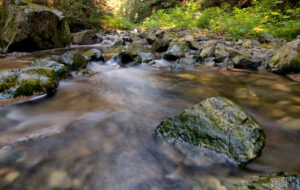 In today’s world, there is a lot of talk about our world and the toll that we are taking on it, by trying to survive. The truth is, each generation leaves their own unique footprint on the Earth. We all do things that impact the world, whether it is filling up landfills or filling our homes with cold air on a hot summer day using an air conditioner that has bad emissions. Along with that, each generation seems to use more of the resources that Earth provides us with freely and this is depleting the resources that we depend on. If we continue on the path that we are on, we may end up using up enough that Mother Nature cannot keep up with our demands. This is why conservation efforts need to be in place. Are you ready to help us conserve?
In today’s world, there is a lot of talk about our world and the toll that we are taking on it, by trying to survive. The truth is, each generation leaves their own unique footprint on the Earth. We all do things that impact the world, whether it is filling up landfills or filling our homes with cold air on a hot summer day using an air conditioner that has bad emissions. Along with that, each generation seems to use more of the resources that Earth provides us with freely and this is depleting the resources that we depend on. If we continue on the path that we are on, we may end up using up enough that Mother Nature cannot keep up with our demands. This is why conservation efforts need to be in place. Are you ready to help us conserve?
What Comes from Nature?
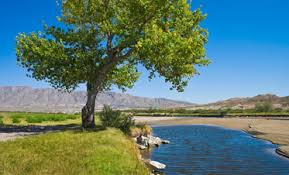 With all the talk about conservation, many people still ask what is it we are using? We should strive to conserve the things that Nature provides for us naturally. For instance; sunlight, water, oxygen are things that Earth provides. There are many other things as well though. In North America, natural gas, petroleum, silver, gold, iron, coal, zinc, and many more things all come naturally. Pretty much every continent provides something unique that we depend on. However, these things do not replenish quickly. They take years to form in some cases and our demands for them grow with each year. Could you imagine a world where there was not enough bauxite to create the aluminum that we need, enough nickel to provide us with steel, or natural gas to heat our homes?
With all the talk about conservation, many people still ask what is it we are using? We should strive to conserve the things that Nature provides for us naturally. For instance; sunlight, water, oxygen are things that Earth provides. There are many other things as well though. In North America, natural gas, petroleum, silver, gold, iron, coal, zinc, and many more things all come naturally. Pretty much every continent provides something unique that we depend on. However, these things do not replenish quickly. They take years to form in some cases and our demands for them grow with each year. Could you imagine a world where there was not enough bauxite to create the aluminum that we need, enough nickel to provide us with steel, or natural gas to heat our homes?
Our Most Important Resources
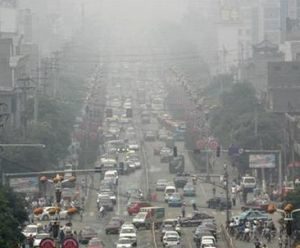 The most important resources we have on earth are water, air, and coal, but there are also many others. All three of these are in limited supply. Only about two and a half percent of our Earth is fresh water. When it is gone, it will be virtually impossible to create more. Fresh air is provided by the trees and the flowers in our world. The more land we clear, the less oxygen we will have in the future. We also do things that damage the air quality with pollution. If all the air is of poor quality on our earth, we will not be able to survive here. Our coal supply is also diminishing quickly. It is estimated that in less than 200 years, coal will be something that we no longer have access to. According to some, there is only enough natural gas to last for another 60 years.
The most important resources we have on earth are water, air, and coal, but there are also many others. All three of these are in limited supply. Only about two and a half percent of our Earth is fresh water. When it is gone, it will be virtually impossible to create more. Fresh air is provided by the trees and the flowers in our world. The more land we clear, the less oxygen we will have in the future. We also do things that damage the air quality with pollution. If all the air is of poor quality on our earth, we will not be able to survive here. Our coal supply is also diminishing quickly. It is estimated that in less than 200 years, coal will be something that we no longer have access to. According to some, there is only enough natural gas to last for another 60 years.
Help Us Conserve
Our world depends on us as much as we depend on it. You may think that conservation efforts are beyond your ability, but this is not true. Our Earth depends on us all to work together in caring for the environment and conserving what we can. Instead of driving your car in the middle of a city, why not walk to work, carpool, or ride a bike to cut down on pollution which damages the air quality? When you want to build a new home on a piece of land, leave the trees that you are able to and plant others outside of the area where you want to build. Fix leaky faucets, recycle things you no longer use, and more. There is plenty of information available at the Macomb Conservation District to help you learn how to help us conserve our world for future generations.
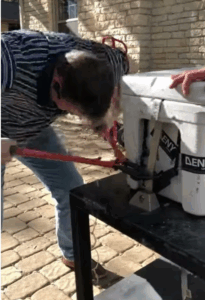 One of the most common items left behind while hunting or riding is a cooler, which may hold food, ice, drinks, or game meat. Quality coolers can be a major investment, making them attractive targets not just for thieves but also for wildlife. A cooler sitting in the bed of a truck or strapped to a trailer becomes an easy grab for someone looking for an opportunity, especially in areas with heavy outdoor traffic. A simple yet effective way to reduce the risk of theft is to avoid leaving gear in open view whenever possible. Storing items behind a truck seat, in a lockable tool box, or in a covered bed can immediately make the vehicle a less tempting target. Keeping your vehicle parked in a visible location rather than hidden behind brush or out of sight can also discourage crime, as thieves typically look for low-risk, quick opportunities.
One of the most common items left behind while hunting or riding is a cooler, which may hold food, ice, drinks, or game meat. Quality coolers can be a major investment, making them attractive targets not just for thieves but also for wildlife. A cooler sitting in the bed of a truck or strapped to a trailer becomes an easy grab for someone looking for an opportunity, especially in areas with heavy outdoor traffic. A simple yet effective way to reduce the risk of theft is to avoid leaving gear in open view whenever possible. Storing items behind a truck seat, in a lockable tool box, or in a covered bed can immediately make the vehicle a less tempting target. Keeping your vehicle parked in a visible location rather than hidden behind brush or out of sight can also discourage crime, as thieves typically look for low-risk, quick opportunities. When gear must be left outside the cab, physical security becomes essential. An ice chest lock is one of the most practical tools for securing a cooler in off-grid environments. These locks typically consist of a hardened padlock paired with a stainless-steel or aircraft-grade cable that loops through the cooler’s molded lock brackets and attaches to a fixed anchor point on the vehicle or trailer. To use an
When gear must be left outside the cab, physical security becomes essential. An ice chest lock is one of the most practical tools for securing a cooler in off-grid environments. These locks typically consist of a hardened padlock paired with a stainless-steel or aircraft-grade cable that loops through the cooler’s molded lock brackets and attaches to a fixed anchor point on the vehicle or trailer. To use an 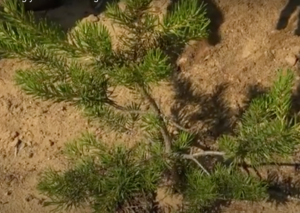 Not all trees and plants need to be aesthetically pleasing to serve an important purpose. In fact, many of the “ugly” or less visually attractive trees are vital for maintaining a healthy environment. While society often celebrates the beauty of flowering trees and lush, ornamental plants, it’s the less glamorous species that can have a more profound impact on the ecosystem. Some of these “ugly trees,” with their gnarled shapes, spindly branches, and non-descript foliage, are unsung heroes in the battle against climate change. Many of them are among the most efficient at producing oxygen and absorbing carbon dioxide, both of which are crucial for maintaining the planet’s balance. They may not win beauty contests, but they play an integral role in sustaining life.
Not all trees and plants need to be aesthetically pleasing to serve an important purpose. In fact, many of the “ugly” or less visually attractive trees are vital for maintaining a healthy environment. While society often celebrates the beauty of flowering trees and lush, ornamental plants, it’s the less glamorous species that can have a more profound impact on the ecosystem. Some of these “ugly trees,” with their gnarled shapes, spindly branches, and non-descript foliage, are unsung heroes in the battle against climate change. Many of them are among the most efficient at producing oxygen and absorbing carbon dioxide, both of which are crucial for maintaining the planet’s balance. They may not win beauty contests, but they play an integral role in sustaining life.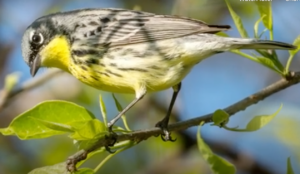 Another
Another 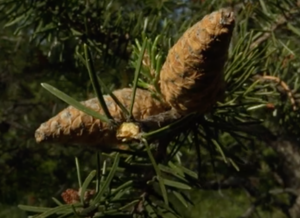 On the opposite end of the spectrum, evergreen trees such as the Douglas fir and pine trees, while often more stately, may also not win beauty contests. However, their role in the environment is irreplaceable. Evergreen trees are among the most efficient at absorbing carbon and providing oxygen throughout the year, unlike deciduous trees that only do so during their growing season. Pines, in particular, grow in harsh conditions where other trees may not survive, and their ability to filter pollutants from the air further enhances their environmental value.
On the opposite end of the spectrum, evergreen trees such as the Douglas fir and pine trees, while often more stately, may also not win beauty contests. However, their role in the environment is irreplaceable. Evergreen trees are among the most efficient at absorbing carbon and providing oxygen throughout the year, unlike deciduous trees that only do so during their growing season. Pines, in particular, grow in harsh conditions where other trees may not survive, and their ability to filter pollutants from the air further enhances their environmental value.

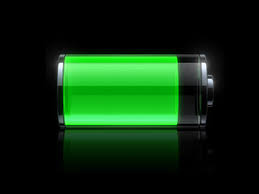
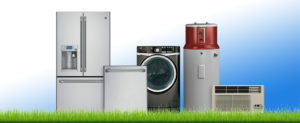 How much is your average power bill each month? If you are like most people, with their central heat and air units, home computers, washers and dryers, and more; it is likely quite a bit. Most people have a heat and air unit for their comfort, refrigerators are required if we want to keep foods fresh, and then we have other appliances that do other things. The one thing all of these appliances have in common is that they jack up a power bill quickly. Therefore, it is important that we start thinking about conserving electricity through efficient appliances.
How much is your average power bill each month? If you are like most people, with their central heat and air units, home computers, washers and dryers, and more; it is likely quite a bit. Most people have a heat and air unit for their comfort, refrigerators are required if we want to keep foods fresh, and then we have other appliances that do other things. The one thing all of these appliances have in common is that they jack up a power bill quickly. Therefore, it is important that we start thinking about conserving electricity through efficient appliances.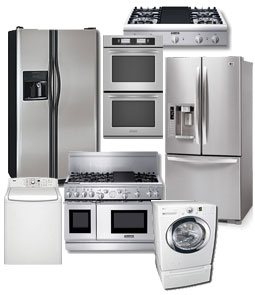 As a general rule, anything you have in your home that runs 24/7 is going to be a big energy hog. For that reason, your refrigerator and/or freezer is definitely going to consume a lot of energy. In fact, refrigerators are at the top of the list, closely followed by stand-alone freezers. People who live in the south or in areas where it rains frequently, may use a dehumidifier. These appliances also use a lot of electricity, since most of them are considered high-wattage appliances and most people use them constantly to keep the humidity down in their home. Air conditioners, heaters, and water heaters are also highly wasteful when it comes to electricity. They all run for hours each day, if not all day, and many of us do not know how to use them in an efficient way.
As a general rule, anything you have in your home that runs 24/7 is going to be a big energy hog. For that reason, your refrigerator and/or freezer is definitely going to consume a lot of energy. In fact, refrigerators are at the top of the list, closely followed by stand-alone freezers. People who live in the south or in areas where it rains frequently, may use a dehumidifier. These appliances also use a lot of electricity, since most of them are considered high-wattage appliances and most people use them constantly to keep the humidity down in their home. Air conditioners, heaters, and water heaters are also highly wasteful when it comes to electricity. They all run for hours each day, if not all day, and many of us do not know how to use them in an efficient way. If you are tired of high power bills, your first step should be to look at the energy rating on your appliances. Even appliances that are a few years old may have affordable replacements that are more energy efficient. If buying new appliances isn’t something you can afford to do, there are other things you can do to increase efficiency in your home. For instance, your refrigerator needs to have its temperature settings turned to the most optimal setting. The freezer should be set to where it is 0-5 degrees and the fridge can be 36-38 at its coldest. You can also check to make sure it is sealed good and avoid holding the doors open while you search for something inside. If you have a central AC and still feel warm during the heat of the day, you could get a portable AC to help keep you feeling cool. Some, like this Whynter Model, are very energy efficient and it will make it easier to cool the hot spots in your home rather than turn down the thermostat to cool the entire house more.
If you are tired of high power bills, your first step should be to look at the energy rating on your appliances. Even appliances that are a few years old may have affordable replacements that are more energy efficient. If buying new appliances isn’t something you can afford to do, there are other things you can do to increase efficiency in your home. For instance, your refrigerator needs to have its temperature settings turned to the most optimal setting. The freezer should be set to where it is 0-5 degrees and the fridge can be 36-38 at its coldest. You can also check to make sure it is sealed good and avoid holding the doors open while you search for something inside. If you have a central AC and still feel warm during the heat of the day, you could get a portable AC to help keep you feeling cool. Some, like this Whynter Model, are very energy efficient and it will make it easier to cool the hot spots in your home rather than turn down the thermostat to cool the entire house more.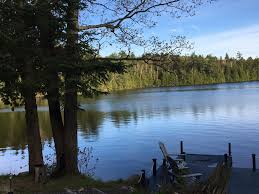 True adventure and nature lovers spend a lot of time in the great outdoors. However, one of the best places to play and explore according to most is a body of water. Lakes, streams, rivers, and more are all uniquely different. They also change constantly because of erosion and other things that happen naturally. Therefore, it is important that we respect water, especially fresh water, and all the animal and plant life that thrive there. As a true nature lover, you wouldn’t want to have a negative impact on the natural order of things in that area. Do you know how to get on the water in an eco-friendly manner?
True adventure and nature lovers spend a lot of time in the great outdoors. However, one of the best places to play and explore according to most is a body of water. Lakes, streams, rivers, and more are all uniquely different. They also change constantly because of erosion and other things that happen naturally. Therefore, it is important that we respect water, especially fresh water, and all the animal and plant life that thrive there. As a true nature lover, you wouldn’t want to have a negative impact on the natural order of things in that area. Do you know how to get on the water in an eco-friendly manner?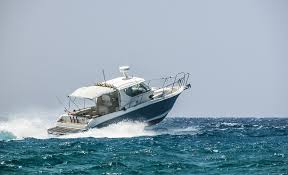 Lakes and large rivers or streams are all beautiful areas of our world. They deserve to be respected. The animals who live in them only have one home. They cannot uproot their “school” to find another home to rent. Exploring what nature provides is a favorite pastime of a lot of outdoors-men, but most all of them use boats to do so. Boats with larger motors are great for speed, but they also come with issues that could make fish wish for a cleaner home. They often discharge exhaust, oil, fuel, and other toxins into the water, especially if you have an older motor that hasn’t been tuned up in a while. Batteries can also leak out if they are not marine specific batteries that have special seals and boxes to ensure that they are able to resist vibrations.
Lakes and large rivers or streams are all beautiful areas of our world. They deserve to be respected. The animals who live in them only have one home. They cannot uproot their “school” to find another home to rent. Exploring what nature provides is a favorite pastime of a lot of outdoors-men, but most all of them use boats to do so. Boats with larger motors are great for speed, but they also come with issues that could make fish wish for a cleaner home. They often discharge exhaust, oil, fuel, and other toxins into the water, especially if you have an older motor that hasn’t been tuned up in a while. Batteries can also leak out if they are not marine specific batteries that have special seals and boxes to ensure that they are able to resist vibrations.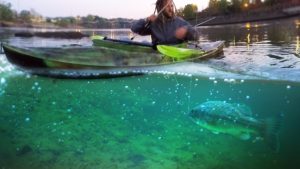 In forests all across the world, you are encouraged to leave nothing but your footprints behind. Although no one can walk on water, it is a good practice in this area as well. It goes beyond trash and such when you are in the water. Keeping oils, battery acids, and other toxins are just as important as keeping plastic out of the oceans where turtles and large fish may become hurt by them. It is all about preserving the area for those who come after you and conserving a natural resource that is in limited supply.
In forests all across the world, you are encouraged to leave nothing but your footprints behind. Although no one can walk on water, it is a good practice in this area as well. It goes beyond trash and such when you are in the water. Keeping oils, battery acids, and other toxins are just as important as keeping plastic out of the oceans where turtles and large fish may become hurt by them. It is all about preserving the area for those who come after you and conserving a natural resource that is in limited supply.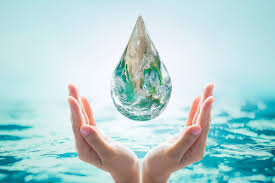 As a world, there are a lot of things that we use that comes naturally from the land that we live on. There are natural gases that can be used as fuel to heat and cool our homes, there are ores and minerals that are formed over thousands of years that we can harvest, and more. Conservation of these natural resources is extremely
As a world, there are a lot of things that we use that comes naturally from the land that we live on. There are natural gases that can be used as fuel to heat and cool our homes, there are ores and minerals that are formed over thousands of years that we can harvest, and more. Conservation of these natural resources is extremely 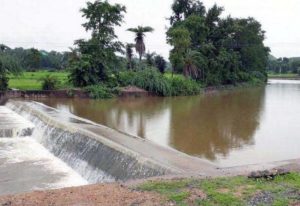 Beyond saving the world from certain death, there are a lot of other
Beyond saving the world from certain death, there are a lot of other  One thing many are doing to help conserve fresh water is to reclaim water, but is it really “reclaimed”? Can we drink it safely? The truth is, reclaimed water is wastewater that we use for irrigation. It is clear and odorless but can also be cleaner than the water we have in our wells. There are some areas of the US that are trying to use reclaimed water as a part of the “drinkable” water supply. However, until it is absolutely certain that we can use reclaimed water for drinking and our survival, perhaps you should consider using it as a way to save fresh water around your home. For instance, there are companies like Earth Stone Water that help you decrease the fresh water use around your home. It is done by setting up tanks that catch water, filter it, and turn it into water that you use for landscaping. You save and put water into the ground where it can be filtered further naturally. Is this something you would consider doing?
One thing many are doing to help conserve fresh water is to reclaim water, but is it really “reclaimed”? Can we drink it safely? The truth is, reclaimed water is wastewater that we use for irrigation. It is clear and odorless but can also be cleaner than the water we have in our wells. There are some areas of the US that are trying to use reclaimed water as a part of the “drinkable” water supply. However, until it is absolutely certain that we can use reclaimed water for drinking and our survival, perhaps you should consider using it as a way to save fresh water around your home. For instance, there are companies like Earth Stone Water that help you decrease the fresh water use around your home. It is done by setting up tanks that catch water, filter it, and turn it into water that you use for landscaping. You save and put water into the ground where it can be filtered further naturally. Is this something you would consider doing?